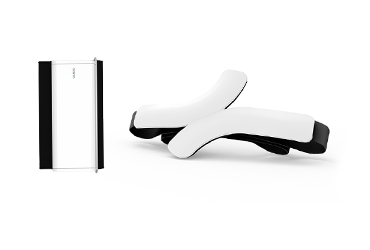Stroke is one of the leading causes of death and disability around the world. While stroke is more common after the age of 55, it might surprise you to learn that one-third of strokes actually happen to younger patients. You should also know that the risk doubles every 10 years after age 55 and both men and women are just as susceptible with one major difference: stroke in women is more common after the age of 65. Unfortunately, this puts women at a greater risk of dying from stroke.
So how do you know you are at risk? See if your current health status and lifestyle increase your risk of stroke.
Have you ever experienced symptoms of transient ischemic attack (TIA) or been diagnosed with TIA?
A transient ischemic attack (TIA) is the result of a sudden but temporary interruption of the blood supply to the brain with symptoms of a stroke that only last several minutes and rarely longer. But if left untreated, TIA might lead to a stroke, sometimes as soon as in 48 hours.
Do you have an irregular heartbeat?
Frequent detection of irregular heartbeat might be a warning sign of heart arrhythmia such as atrial fibrillation, which significantly increases the risk of a stroke. Keeping a track of irregular heartbeat is important and easy with QardioArm smart blood pressure monitor and Qardio App.
Do you know what is heart arrhythmia and atrial fibrillation? If not, have a look at our articles ”Let’s talk about (abnormal) heart rhythm” and ”Atrial fibrillation from A to Z.”
Do you snore?
Snoring is known to be a precursor of stroke as the vibrations during snoring can narrow the carotid arteries. But loud snoring may be a sign of sleep apnea, a common disorder in which breathing temporarily stops during sleep. Apart from tiredness, sleep apnea can lead to more serious health problems including heart disease.
Have you been diagnosed with chronic stress?
Chronic stress can contribute to cardiovascular problems including increasing the risk of stroke because when your main stress hormone, cortisol, remains elevated for extended periods of time, it also affects blood circulation and increases vulnerability to blood clot formation.
Are the major blood vessels in your neck narrowed?
It is important to pay attention to changes in the major blood vessels and arteries in your neck as those are responsible for the oxygen transfers to the brain. Narrowing, also called carotid artery disease, can be spotted during a GP check-up or with tests or scans. Managing cholesterol and blood pressure at healthy levels can prevent or slow carotid artery disease.
Are you a smoker?
Smokers have been shown to have a much higher risk of a stroke, along with developing other heart diseases. Smoking is also one of the causes of the above-mentioned blood vessel narrowing that might lead to a stroke.
Do you have diabetes?
Managing diabetes, maintaining a healthy BMI, and living an active lifestyle can significantly reduce the risk of stroke. Even those predisposed to developing diabetes are thought to have a higher risk of stroke and are advised to closely follow a healthy regime.
Do you have high blood pressure?
Hypertension is probably responsible for more strokes than any other trigger so being aware of your blood pressure levels and intra-day changes is really important. If you do not have high blood pressure but have a family history of it, you should still measure your blood pressure often and keep a journal of it.
Qardio smart health devices make it easy to keep your heart health in check. Use QardioArm, our smart blood pressure monitor, to measure your blood pressure and keep an eye on your irregular heartbeat to prevent a stroke. QardioCore wireless ECG monitor measures and records more than 20 million heart health data and can track medical-grade ECG/EKG, heart rate variability, activity levels, respiratory rate, and many other heart health metrics so you and your doctor can care for your heart anytime, anywhere.
Sources:
American Stroke Association




